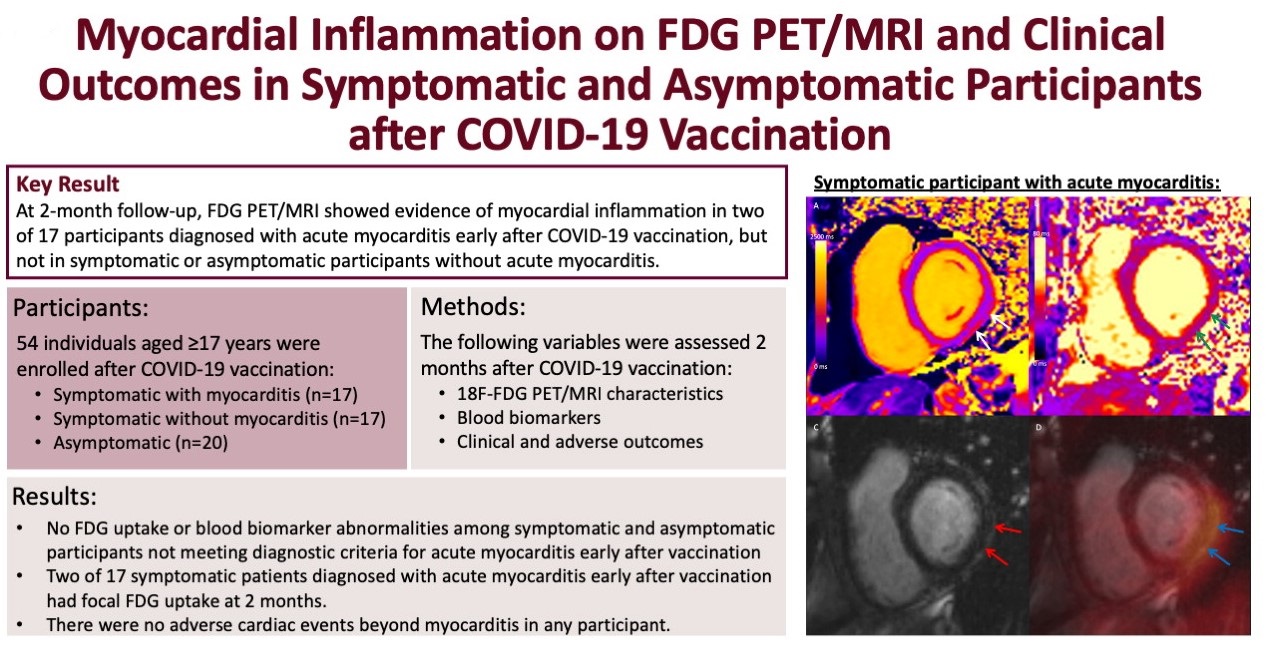A groundbreaking study, led by Dr. Kate Hanneman from the University of Toronto, Canada, is helping us understand how COVID-19 vaccines might affect our hearts. This study is special because it’s the first of its kind and looks at both people with symptoms and those without after they got vaccinated.
Why This Study Matters:
With many people around the world getting COVID-19 vaccines, it’s important to know if these vaccines can cause problems in our hearts. Some people had heart inflammation, which is like swelling of the heart muscle, after getting mRNA-based COVID-19 vaccines. This inflammation can make the heart beat strangely, pump blood less effectively, and leave scars on the heart muscle. Most cases of heart inflammation happen more in young men, but the risk overall is still low.
Understanding Heart Effects and Symptoms:
Some people who got the vaccines had heart-related symptoms like chest pain, a racing heartbeat, or feeling out of breath. However, their heart inflammation didn’t always match the usual signs of heart problems. Dr. Hanneman wants to study these cases more because there’s still a lot we don’t know. She’s curious about the changes that happen in the heart’s tissue after vaccination, especially in people without symptoms and those with new symptoms that don’t exactly match heart issues.
How the Study Worked:
Dr. Hanneman and her team used special tools like Cardiac MRI and Cardiac Fluorine 18 (18F) Fluorodeoxyglucose (FDG) PET to look inside the hearts of 54 people about two months after they got vaccinated. They grouped these people into three categories: those with heart inflammation and symptoms, those with symptoms but no heart inflammation, and those without symptoms.
What They Found
It turns out that most people without symptoms and those with symptoms but no heart inflammation didn’t show signs of heart damage when they looked closely at their hearts. However, a couple of people with symptoms and heart inflammation did show changes in the heart. People with heart inflammation and symptoms also reported a lower quality of life, meaning they felt less well overall. Importantly, there were no other serious heart problems beyond the heart inflammation.
Symptoms Are Tricky Indicators:
A big finding is that just having symptoms doesn’t always mean there’s a problem with the heart. Some people had symptoms that seemed like heart issues, but their hearts were actually fine. This shows that symptoms alone can’t always tell us if there’s a real heart problem.
Reassurance for People without Symptoms:
For people who got the vaccine and didn’t feel any symptoms, the study says their hearts are likely okay. The tests showed that their hearts didn’t have hidden damage, even if they worried about it.
What’s Next:
Dr. Hanneman wants to keep looking into why some people feel unwell after the vaccine but their hearts seem okay. There might be other reasons for these feelings that aren’t related to the heart. This means more research is needed to keep everyone safe and understand how vaccines can affect us.
For more interesting topics, visit blogtoeducate.com






